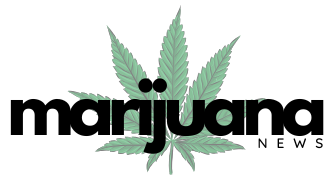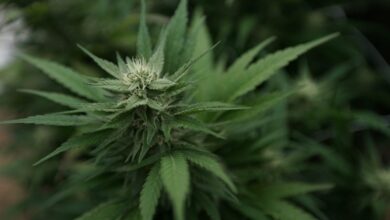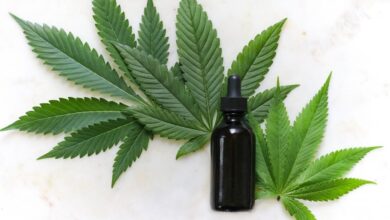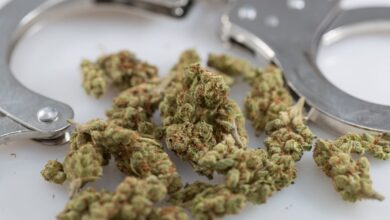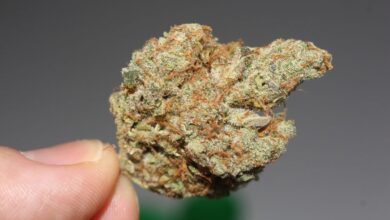Hawaii Lawmakers Host Briefing On Marijuana Legalization Bill Ahead Of Formal Hearing Next Week
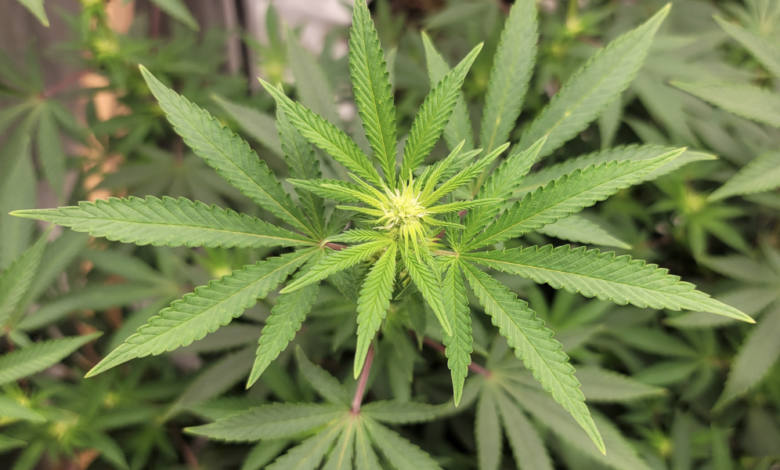
A bunch of Hawaii lawmakers heard displays from specialists and state officers this week a few new plan to legalize adult-use marijuana within the state that will additionally put all consumable hashish—together with medical marijuana and hemp merchandise—below a single regulatory company.
Sponsored by Home Judiciary and Hawaiian Affairs Chair David Tarnas (D) and Senate Well being and Human Providers Committee Chair Pleasure San Buenaventura (D), the 311-page companion proposals—HB 1246 and SB 1613—would enable adults 21 and older to own as much as an oz of marijuana and 5 grams of hashish focus as of January 1, 2026. Adults may additionally develop restricted quantities of marijuana at residence for private use.
If enacted, the laws would set up the Hawaii Hashish and Hemp Workplace, which might oversee adult-use hashish, medical marijuana and hemp companies.
“This actually is a one-plant strategy,” Tarnas stated throughout what was described as an informational briefing on Wednesday that his panel hosted.
The briefing comes forward of a committee listening to on the Home invoice set for Tuesday of subsequent week.
A lot of the roughly two-hour occasion consisted of displays from legalization advocates, regulatory specialists and trade and neighborhood representatives. They gave lawmakers an outline of state-level legalization within the U.S. and spoke to how the Hawaii proposal constructed on classes realized in different states.
A few of the major points raised by lawmakers throughout a Q&A session included how legalization may have an effect on youth use of marijuana and what some described because the widespread availability of hemp-derived cannabinoids, akin to vape merchandise containing THC.
“Plenty of vape outlets at the moment promote vaping merchandise which they promote as THC merchandise…there’s delta-8, delta-9 [THC],” stated Rep. Diamond Garcia (R). “On these containers, it says that it’s a authorized product per the 2018 Farm Invoice. So I feel it’s unclear to individuals right here in Hawaii: Is that authorized? Is that THC? And so, what’s happening?”
Kaliko Castille, CEO of ThndrStrm Methods and a former president of the Minority Hashish Enterprise Affiliation, stated one advantage of the brand new invoice is that it might deliver regulation of all marijuana and hemp merchandise below one roof.
“You assume that is complicated for these of us who’re within the coverage world or dwell within the hashish trade,” he stated. “Most voters don’t perceive the distinction. And in the event that they see accessible on a shelf anyplace, they assume it’s authorized.”
Tarnas stated that in his conversations with hemp companies, “they’re trying ahead to the proposed laws, as a result of they felt it might be higher to be regulated by an workplace that’s actually coping with all facets of the hashish plant.”
Some of the vital considerations he’s heard from fellow lawmakers about legalization, he stated, is the way it may have an effect on underage use of the marijuana. “We hear from some advocates who’re opposing this saying that, you will notice a major improve in use of hashish by these below 21,” he famous.
Karen O’Keefe, state coverage director for the advocacy group Marijuana Coverage Undertaking, ready a handout for lawmakers that included before-and-after knowledge for a number of U.S. states which have legalized marijuana for adults.
“We take the largest survey that was performed within the state for youngsters instantly previous to legalization after which yearly up till the newest 12 months” of obtainable knowledge, she defined, “and in 19 out of the 21 states, we’ve seen a lower.”
Information from Washington State, one of many first two U.S. states to legalize adult-use hashish, in 2012, noticed significant drops throughout age ranges, O’Keefe defined.
“In 2010, 9.5 p.c of eighth graders had used marijuana within the final 30 days. Following legalization, “it was down to three.7 [percent]. That’s a few third of what it was earlier than legalization.”
Amongst tenth graders, “it was 20 p.c in 2010. It went down to eight.4 p.c—greater than a 50 p.c drop. Twelfth graders, it was 26.3 p.c pre-legalization, 16.3 p.c post-[legalization], in 2023.That’s a 10-point drop.”
“We are able to’t conclude causation,” O’Keefe acknowledged, “however it was a fairly exceptional drop in each state we’ve noticed.”
“And constant throughout the board,” replied Tarnas.
“We need to handle this in, you recognize, a really deliberative course of right here on the legislature, and base it on info,” the lawmaker continued. “And I feel that’s what you have got helped us with, is: What are the info?”
Audio system additionally briefly discussed how Hawaii’s adoption of a complete hashish regulatory scheme may higher put together the state for the potential for legalization on the federal degree. For instance, Tarnas stated regulation may assist guard Hawaii from an inflow of out-of-state merchandise and shield the curiosity of in-state companies.
O’Keefe additionally identified that if a authorized trade have been up and working as soon as interstate commerce is allowed, Hawaii may very well be properly positioned to export hashish merchandise to different markets.
Andrew Goff, deputy state lawyer normal in Hawaii, stated the more-than-300-page invoice is essentially sophisticated, together with possession restrictions, license applicant vetting, provisions to make sure the state’s current medical marijuana system isn’t unduly affected and guidelines round consumable versus non-consumable hemp merchandise, akin to textiles and hempcrete, a constructing materials.
“The present enforcement is fragmented throughout a number of jurisdictions, so it’s actually tough to implement and get everybody who has jurisdiction to implement to purchase in,” he stated. “What this invoice does, mainly, is it creates constant enforcement from a single company funded by hashish use tax gross sales [and] ensures uniform rules in keeping with medical hashish. It gives clear enforcement authority for restricted cannabinoids and ensures industrial hemp will not be regulated as a hashish cannabinoid program.”
Right here’s what the laws, HB 1246 / SB 1613, would do:
- Set up the Hawaii Hashish and Hemp Workplace, which might regulate adult-use hashish, medical marijuana and hemp companies. The workplace can be housed inside the Division of Commerce and Client Affairs and charged with prioritizing public well being and security.
- Regulators would promulgate guidelines for the state hashish system, license companies, register sufferers, keep a seed-to-sale monitoring system and publish research and experiences on varied components of this system.
- Interim guidelines can be due by December 31, 2025, with last guidelines to be adopted by December 31, 2030.
- An 11-person advisory board would examine points round federal legislation, affected person entry, fairness and different issues, making suggestions to lawmakers and regulators. Members would come with representatives of the hemp and marijuana industries, agriculture, public well being and security, Native Hawaiian tradition, psychological well being and substance abuse remedy.
- As of January 1, 2026, adults 21 and older may possess as much as an oz of marijuana and 5 grams of hashish focus.
- As of January 1, 2026, adults may additionally develop as much as six crops for private use and retailer as much as 10 ounces of homegrown hashish of their residence. Households with a number of adults can be restricted to a complete of 10 crops and two kilos of homegrown hashish.
- Gross sales of adult-use hashish can be taxed at 14 p.c, whereas the medical marijuana tax price would stay at 4 p.c.
- After the prices of administering this system, 30 p.c of state income would go to a social fairness grants program. A public well being and training grants program would obtain 10 p.c, as would a separate public security grant program. 5 p.c every would go to a hemp grants program, to counties, to the lawyer normal’s workplace for nuisance abatement and to counter cash laundering and arranged crime.
- Artificial or “artificially derived” cannabinoid merchandise can be restricted.
- Edibles couldn’t resemble sweet or different merchandise aimed toward kids, nor may they appear to be individuals, animals, fruit or cartoons.
- Packaging couldn’t embrace graphics, footage or a number of colours. Medical marijuana particularly would have to be in white packaging.
- Labels would wish to incorporate a common hashish image.
- Cultivation couldn’t happen in federal public housing, shelters, on-campus housing or motels, amongst different areas, and it may very well be prohibited by landlords and owners associations.
- Landlords may prohibit smoking or vaping marijuana however basically couldn’t ban individuals from possessing non-inhaled hashish merchandise.
- Smoking marijuana in public can be a civil violation, with penalties of as much as $130 or 10 hours of neighborhood service
- Driving below the affect of marijuana would stay against the law. A brand new penalty would additionally punish a passenger discovered smoking or vaping with a petty misdemeanor, carrying a superb of as much as $2,000.
- Until saved in a car’s trunk or different place out of attain of the motive force, an open container can be punished by a superb of as much as $130 or as much as 10 hours of neighborhood service.
- Promoting hashish to minors can be a misdemeanor.
- Diverting marijuana from a licensed enterprise to the unregulated market can be a Class C felony.
- Unlicensed extraction of hashish utilizing butane can be a Class C felony.
- Minors possessing as much as 5 grams of hashish focus may very well be charged with a petty misdemeanor, as may adults in possession of greater than 5 grams of focus.
- State and native authorities staff basically couldn’t be fired for utilizing medical or adult-use hashish away from work or for testing optimistic marijuana metabolites. Workers topic to federal necessities wouldn’t qualify for such protections, and exceptions may apply within the case of collective bargaining agreements.
- Regulators would license cultivators, processors, retailers, smaller-scale craft dispensaries and impartial testing laboratories. Craft dispensaries may promote solely their very own hashish merchandise.
- The primary spherical of licenses below the legislation can be issued by July 1, 2026, although dual-use licenses permitting medical marijuana companies to serve adult-use prospects can be issued by January 1, 2026.
- Licenses can be awarded primarily based on a randomized lottery offered candidates meet sure minimal requirements and {qualifications}. Participation by small companies, Indigenous farmers and folks from areas disproportionately impacted by the drug ware can be inspired.
- No individual may have an curiosity in additional than 9 licenses, as much as three per license class.
- Individuals with an curiosity in an impartial testing lab couldn’t have an curiosity in every other hashish enterprise.
- Individuals with an curiosity in a small-scale cooperative or craft dispensary couldn’t have an curiosity in a enterprise of every other license sort.
- All license candidates would have to be residents of Hawaii for not less than 5 years and couldn’t have any felony convictions aside from for cannabis-related offenses, pardoned or expunged offenses or sentences accomplished greater than 10 years earlier.
- Regulators may craft guidelines to permit particular occasion permits, social consumption and sure different actions.
- Medical marijuana dispensaries may transition to dual-use (medical and leisure) retail services. Conversion would value $50,000 per retail location and $25,000 for every manufacturing facility.
- State-registered sufferers and caregivers may possess as much as 4 ounces of marijuana. They may additionally develop as much as 10 crops and possess as much as a pound every of homegrown hashish for private use, with a most of two kilos per family.
- State regulators would license medical marijuana co-ops of as much as 5 sufferers.
- Laws would come with guidelines round safety, well being and security, promoting and labeling, power and environmental requirements, worker coaching and varied different issues.
- All staff of hashish companies would have to be not less than 21 years of age. Nobody below 21 may enter retail shops.
- Companies would have to be not less than 750 ft from colleges, parks and public housing complexes.
- Cultivators can be restricted to three,500 sq. ft of indoor cover area and 5,000 sq. ft of outside develop area.
- Handouts would have to be included with all offered merchandise. They would wish to incorporate a wide range of info, together with directions, warnings about secure use, potential adversarial results and the standing of federal legislation—together with how the battle with federal prohibition impacts gun rights, employment and different rights and advantages.
- Pesticide use on hashish merchandise can be regulated by the state Division of Agriculture.
- Hemp companies may promote cured hashish flower offered it meets U.S. Division of Agriculture compliance requirements and state guidelines round testing, packaging and labeling.
- Aerosol hemp sprays can be prohibited.
- Hemp cultivation can be prohibited inside 300 ft of colleges, childcare facilities or playgrounds and will additionally not be inside 100 ft of a residence not owned by the licensee.
- With regard to hemp, regulators may prohibit particular cannabinoid merchandise. Hemp tinctures may include not more than 30 milligrams of THC per bundle and will solely be offered to adults 21 and older.
- A social fairness grants program would help candidates who’d resided in a disproportionately impacted space for not less than 5 of the previous 10 years or companies with greater than half of staff residing in a disproportionately impacted space.
- “Disproportionately impacted space” would confer with areas of persistent poverty, medically underserved communities, and traditionally deprived communities as decided by regulators.
- Fairness candidates would qualify for a 50 p.c low cost on utility and licensing charges for his or her first 5 years of operation.
- Fairness grants would come with monetary help, technical assist and coaching.
- Funding would additionally go to community-based organizations to assist childcare and youth packages.
- Regulators would rent contractors to develop a public well being and training marketing campaign starting later this 12 months.
- A public well being and grant program would award funds to community-based organizations for a wide range of well being and education schemes.
- A separate public security grant program would award funds to state and county companies for legislation enforcement, disaster intervention, and enforcement of nuisance abatement legal guidelines, amongst others initiatives.
- A hemp grant program would help smaller cultivators with trade coaching, technical help and market analysis initiatives.
- Marijuana companies may deduct enterprise bills on their state taxes, regardless that comparable deductions stay prohibited on the federal degree.
The brand new proposal comes after lawmakers final 12 months fell wanting passing a legalization invoice. The Senate accepted accepted that measure final March, however, as with previous efforts to finish prohibition, it stalled out within the Home of Representatives.
O’Keefe instructed Marijuana Second in a current interview that there’s good cause to imagine this 12 months’s effort has a greater probability at passage. On high of continued assist from Gov. Josh Inexperienced (D), she famous that the state’s new speaker of the Home, Rep. Nadine Nakamura (D), additionally favors the reform.
“The hope is that it’ll have the ability to get by way of all the committees that it’s referred to within the Home,” she stated. “It had the governor’s assist. It handed the Senate. So actually, the one impediment is the Home.”
O’Keefe and another advocates had blended emotions about final 12 months’s proposal, which many noticed as over-regulated. That invoice, primarily based on a draft from the state lawyer normal’s workplace, “had a number of language that we thought of too authoritarian, too restrictive,” she defined, noting that in some circumstances—akin to a non-impaired driver who nonetheless had measurable THC of their system—the proposal would have really elevated legal penalties.
This previous fall, regulators solicited proposals to assess the state’s present medical marijuana program—and in addition sought to estimate demand for leisure gross sales if the state finally strikes ahead with adult-use legalization. Some learn the transfer as an indication the regulatory company noticed a necessity to arrange to the potential reform.
Individually, a Home panel earlier this week superior laws that will shield state-registered medical marijuana sufferers from discrimination within the office.
The invoice, HB 325, would stop employers from utilizing an individual’s standing as a medical marijuana cardholder in opposition to them when making hiring, firing or different employment-related choices, with some limitations. It will additionally bar discrimination primarily based on a registered affected person’s optimistic drug take a look at for hashish or metabolites offered the individual will not be impaired on the job.
“The continued battle between state and federal medical hashish legal guidelines causes confusion for employers, who’re uncertain whether or not state medical hashish legal guidelines supersede their energy to implement drug-free office insurance policies in opposition to staff,” the measure’s introductory textual content says. “The courts have constantly dominated in favor of employers when qualifying sufferers problem drug-free office insurance policies, but haven’t completely foreclosed on the chance that state medical hashish legal guidelines may function to guard qualifying sufferers in opposition to employment discrimination.”
“With out specific statutory steerage,” it continues, “the courts could not correctly stability the wants of qualifying sufferers for employment protections and an employer’s want to supply a secure office.”
The protections would apply to each private and non-private staff, although it might not lengthen to legislation enforcement or corrections staff, state and county firefighters, emergency medical staff, lifeguards or swim instructors, individuals who carry firearms on the job, individuals who function autos or heavy equipment, emergency administration staff, individuals who work with kids or the aged or individuals who administer managed substances, amongst different carveouts.
Employers may additionally discriminate in opposition to medical marijuana sufferers if “a failure to take action would trigger the employer to lose a financial or licensing-related profit below a contract or federal legislation.”
Hawaii was the primary U.S. state to legalize medical marijuana by way of its legislature, passing a legislation in 2000.
Practically two dozen states have already got some form of employment discrimination protections for medical marijuana sufferers, in accordance with the Nationwide Convention of State Legislatures.
Photograph courtesy of Mike Latimer.
